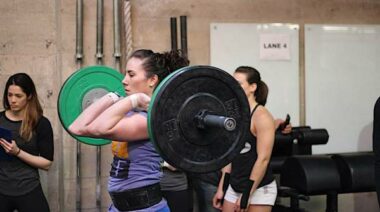Iron is essential for the health of your blood, but too much of it is toxic. As a result, many experts caution against iron supplements and diets high in iron. A recent research review in the Journal of Strength and Conditioning Research offered some insight into iron supplementation in athletes, particularly runners.
Research Findings
Often, women’s multivitamins will include iron and men’s will not due to the loss of iron during menstruation. However, blood loss isn’t exclusive to women. It has been long known that exercise can damage blood cells. This damage results in the loss of blood cells, which increases the demand for dietary iron. The researchers in the newest review noted that iron deficiency, which results in a condition called anemia, will definitely reduce performance.
They also indicated that runners may be more prone to anemia than non-athletes. In running, multiple factors can cause the destruction of iron-containing cells. The impact with the foot on the ground causes a deformation of the foot, and the foot’s mechanical action theoretically destroys cells. Also, running increases the pressure inside our muscles to 300 mmHg, which is more than double a healthy systolic blood pressure. The pressure can be damaging to cells.
The researchers identified fifteen studies relating to the performance of runners and iron supplementation. In addition to studies specific to runners, the researchers referenced 66 other studies in which iron status or supplementation in athletes was discussed.
Here’s a bit of context to help us understand the results of this study. Healthy iron levels amount to about 50mg/kg of bodyweight, making iron the most abundant trace element in the human body. As an example, a 150lb male would have about 3g of iron in his body, nearly seventy percent of which is found in the blood.
Although the average diet contains about 15-20mg of iron, only a gram or two is able to be absorbed in a given day. The body can excrete less than 1mg of iron each day. This delicate balance of intake and loss needs to be maintained for optimal performance.
Implications for Athletes
Although the researchers found that iron deficiency caused performance decrements that were alleviated by diet or supplementation, high doses of iron were not better. In fact, as noted above, the researchers agreed that more can be toxic.
If you exercise a lot, even if you’re a man, maintaining iron balance is important for performance. The researchers found that a diet high in meat, such as the paleo diet, was as effective as a 50mg/day iron supplement. A supplement of 100mg/day has been shown effective as well.
Ultimately, if you have blood work done and find out you’re iron deficient, medically-supervised iron supplementation is likely to improve your performance. If you have no reason to suspect deficiency, a healthy, meat-rich diet will keep your iron levels in the ideal range.
References:
1. Michael Zourdos, et. al., “A BRIEF REVIEW: THE IMPLICATIONS OF IRON SUPPLEMENTATION FOR MARATHON RUNNERS ON HEALTH AND PERFORMANCE,” Journal of Strength and Conditioning Research 2014, DOI: 10.1519/JSC.0000000000000636
Photo courtesy of Shutterstock.






